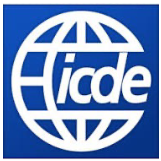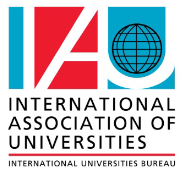Frequently Asked Questions (FAQs)
1. Can a foreign student follow a course in OUSL?
Yes. Foreign students are welcome to follow courses / programmes in the OUSL. Foreign students can enroll to a study program of his/her interest in the OUSL and follow it as a regular undergraduate. Opportunities are opened for post graduate studies leading to Masters and Doctoral Degrees. In addition, there are specific schemes designed for foreign students to enroll as overseas students, overseas visiting research students and visiting scholars and fellows.
2. What are the programs opened for foreign students in the OUSL?
All study programmes (www.ou.ac.lk–>Study–>Programms) that are conducted in English medium are opened for foreign students. Should you need further information in this regard, do not hesitate to contact IRU (ird@ou.ac.lk) If you include the programmes of interest and the current status of your qualifications, we may be able to respond to your specific questions in a short time.
3. Is OUSL a government university and recognized in my country?
Yes, OUSL is a fully-fledged state university governed by the University Grants Commission under the Ministry of Higher Education in Sri Lanka. OUSL is recognized in the Association of Commonwealth Universities, International Association of Universities and Asian Association of Open Universities. Many graduates of the OUSL are working in the overseas institutes and follow post-graduate research up to doctoral degree in foreign countries including USA, UK and Thailand. The OUSL has also developed partnerships with Foreign Universities and International Research Institutes.
4. Why I select OUSL to plan next phase of my studies?
The Open University of Sri Lanka (OUSL- established in 1980) is the premier Open and Distance learning institution in Sri Lanka where students can pursue their studies through Open and Distance Learning (ODL) methodologies. There are nearly thousand courses offered at certificate to master’s degree level. The OUSL also offers research degrees from MPhil the doctoral degrees. These courses are offered over 30 academic fields organized into six Faculties.
The workload in the university can be adjusted so that you can engage in another activity or job in parallel. You do not require to visit the university regularly as studies are conducted through ODL method. You can study at your own pace and space in most of the cases. You become a true lifelong learner by engaging with the OUSL along with more than 40,000 students studying at the OUSL. They are being served by nine {Regional Centers} and eighteen Study Centers located around the country.
5. What are the entry requirements for the study programmes?
There are multiple entry points for the academic programmes. General Certificate of Education (Advanced level) or equivalent qualifications such as Cambridge International AS & A Level and Pearson Edexcel International Advanced Levels are the entry qualification for Degree / Diploma programmes.If you do not have minimum qualifications equivalent to GCE (A/L) to enter into a degree Programme, you can gain entry by completing either Foundation progamme (Advance Certificate in Science) comparable to level 2 of the Sri Lanka Quality Framework or any such qualification accepted by the senate of the OUSL.
Entry into postgraduate degree programmes requires a bachelor’s degree or equivalent qualifications in the relevant field. Entry into PhD programmes, generally require qualifications matches to a Mphil degree. More details on entry qualifications can be found here. There are multiple exit points in the study Programme; for instance, an undergraduate of BSc degree Programme has an exit point at the end of 60 credits with a Higher Diploma inScience.
6. What are the courses and study programmes I could study?
University has six Faculties: Natural Sciences, Engineering Technology, Humanities and Social Sciences, Education, Management and Health Sciences which offers nearly 1000 courses organized into 75 academic programmes. There are Post Graduate Degree Programs, Bachelor’s Degree Programs, Diploma Programs, Certificate Programs, Short courses and Foundation programmes offered in the OUSL from the different faculties. In addition, stand-alone courses avail you the opportunity to study individual courses in the programmes (www.ou.ac.lk–>Study–>Programms).
7. Can I enroll in more than one study Programme at the OUSL?
Yes, there is a provision to register up to two study programmes parallelly, provided that the total {credit value} of the courses offered per year does not exceed 38.
8. What is the medium of instruction in the OUSL?
All the courses for Foreign Students will be conducted in English Language and all foreign students have to comply with the English language requirements in the study Programme.
9. Do I have to be present in Sri Lanka throughout to follow a course?
You may be able to follow some courses offered by the OUSL in your own country but need to visit the closest {Sri Lankan foreign mission} to sit for assessment tests and final examinations. Most of the courses in engineering technology, natural sciences and health sciences have mandatory laboratory classes, workshop training and clinical sessions which require your physical presence in Sri Lanka for specific durations.
10. How can I enroll in a course or study Programme in the OUSL?
As a prospective foreign student, the first thing you have to do is to choose an appropriate Programme or course of your interest. Then you may check if the entry requirements stipulated in the course or Programme match to your qualifications. You may also be interested in knowing the course / Programme fee which are mentioned here. There is a specific time period to apply for each course /Programme of study to apply {Link of upcoming courses}. In case if you need further information on meeting the entry requirement, please check it with the IRU.
The next step is submission of application which you could do through the online application here. You are required to upload copies of Educational and professional Qualifications and your birth certificate and passport during the online application.
Once your application is selected to grant admission, the IRU will be in touch with you through email to instruct you on the immigration procedures to get through the requirement of Visa. Students generally arrived in Sri Lanka with an entry Visa. You are required to obtain an appropriate category of visa for long term stay. IRU will assist you in the immigration procedure and offer you an orientation Programme.
11. Is it easy to get a student visa for Sri Lanka?
Sri Lanka is a thriving knowledge hub in Asia and is promoting enrollment of overseas students in the higher education institutes in the country. There are several nations which are granted on arrival visa status and others can easily obtain student visas if a state university recommends. The International Relations Unit of the OUSL is supporting foreign students to obtain student visas conveniently. Official information about the student VISA application process can be {found here}.
12. What is the cost of study and living in Sri Lanka?
Sri Lanka is a developing country and the cost of education and living is fairly lower than the developed countries and also among the Asian countries with similar educational standards. The cost of food, cloth and public travelling is relatively cheaper in Sri Lanka, but the cost of lodging may vary according to the place and facilities. The main campus of the Open University Sri Lanka is situated in the high residential area in Colombo. It is estimated that the cost of education in Sri Lanka is around 10% of the cost incurred to get the same qualifications in the Developed country.
In case of registering for a Programme of study in the OUSL, the first Instalment must be paid at the registration, in addition to that, a refundable deposit of USD 1000.00 have to be paid by the foreign nationals. There will be a 50% discount for students from the SAARC countries, and a considerable amount of discount will be offered for low income countries. The tuition fees are given in here {hyperlinked table}.
13. Why is study in Sri Lanka a unique experience?
Higher education in Sri Lanka maintains high standards in par with developed countries, particularly in the state universities of which the quality is assured by the university grants commission of Sri Lanka. Return of investment for students in terms of their expenditure for higher studies in Sri Lanka is comparatively high. Government is planning to make Sri Lanka an educational and economical hub of Asia and there would be a rapid expansion in the education sector in near future. Besides, Sri Lanka harbours a very rich culture with a long history and people are very friendly and generous to the visitors. Therefore, you will not feel a stranger amongst Sri Lankan people.
Despite being a small island, Sri Lanka is a biological hotspot with very high biodiversity. Three-hour travel across the country can experience a wide range of ecosystems from coastal to montane forest through the tropical rainforest. The largest mammal of the land and sea can be observed in three hours of travel. There are spectacular arts, archeological sites and cultural festivals in this predominantly Buddhist islandic nation. Sri Lanka is the {best tourist destination in the world}, and it would be a unique and lifelong experience for you to stay and study in Sri Lanka.
Dr. Prasad Senadheera
Director / IRU
BSc. (Colombo), PG. Dip IT (Kelaniya), Ph.D. (Colombo)
Senior Lecturer in Botany
Tel: +94 11 285 4111, +94 11 288 1003
E-mail: spsen@ou.ac.lk, dirir@ou.ac.lk
Ms Chandi Perera
Assistant Director / IRU
BSc (Finance)Sp. USJP
Tel: +94 11 285 4111
E-mail: ird@ou.ac.lk, kcper@ou.ac.lk
Office:
International Relations Unit,
The Open University of Sri Lanka
P.O Box 21, Nawala,
Nugegoda (10250), Sri Lanka.
Tel: +94 11 2854111
E-mail: ird@ou.ac.lk
Web: www.ou.ac.lk
Last Updated on 2 days








